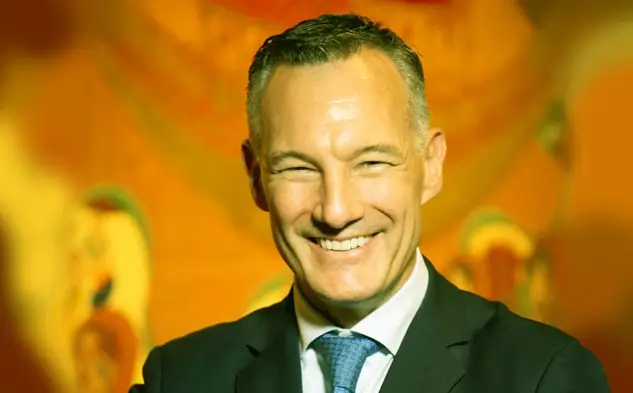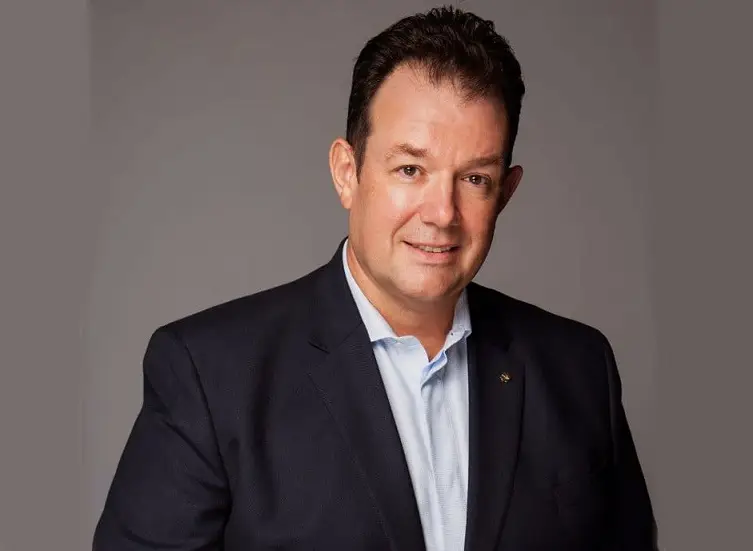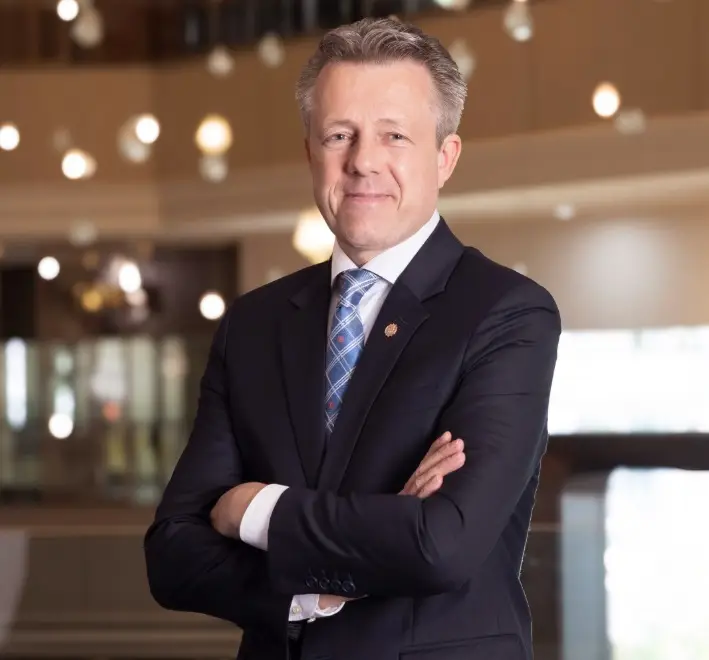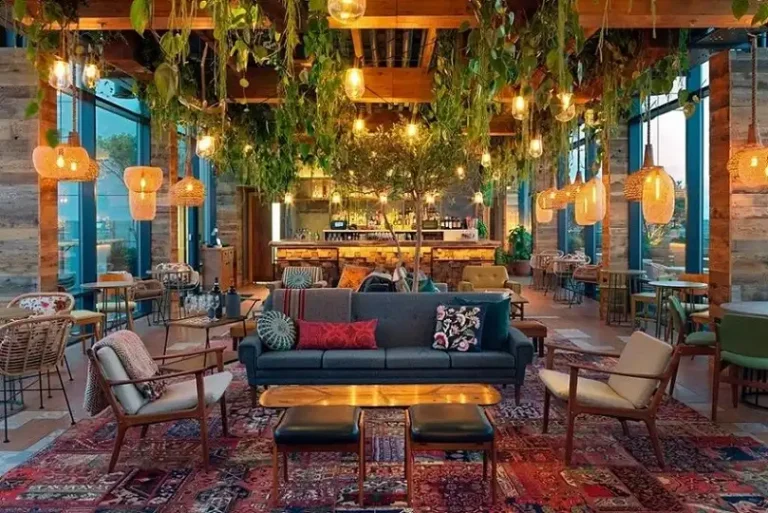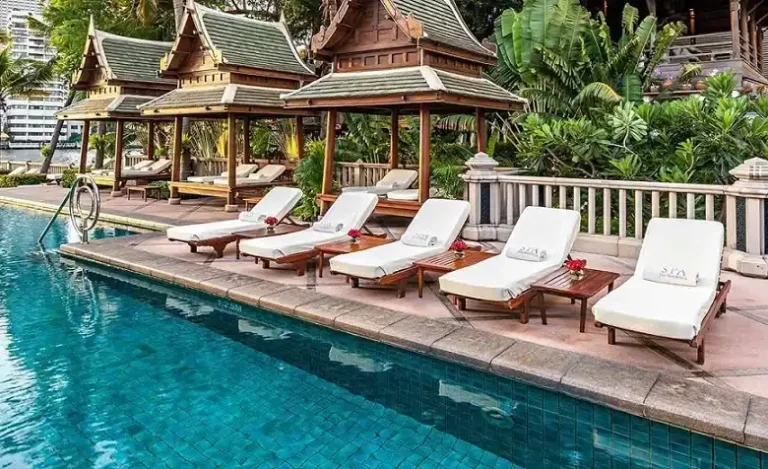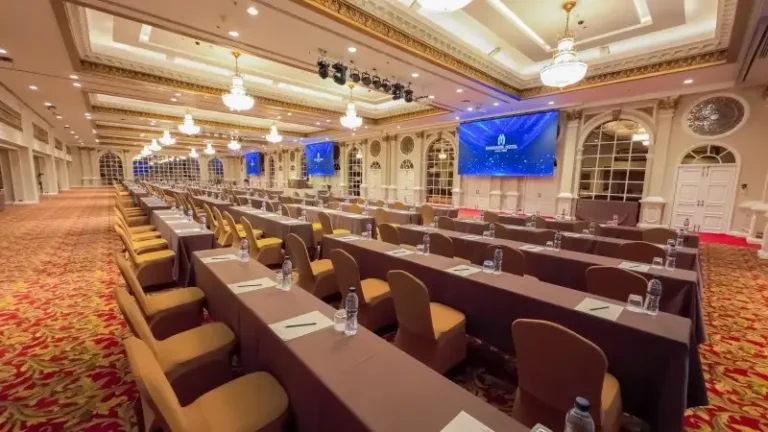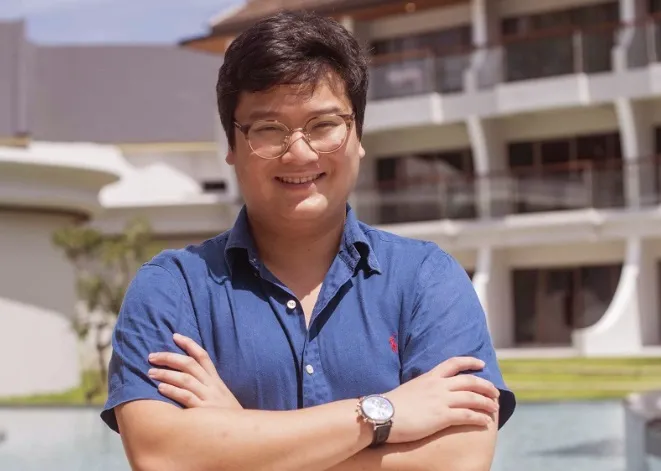
Bangkok Hotel Executives: At a time when global hotel chains are pushing to acquire or affiliate with independent operators in the wake of COVID-19, a new wave of next-generation hotel owners in Asia are choosing to defy the trend. Among the most compelling is Earp Siriphatrawan, the dynamic and highly educated young executive steering his family’s boutique hospitality brand, Amora Hotels & Resorts, into a bold new era.

Earp, who holds a bachelor’s degree in economics from the London School of Economics and a master’s degree in management from the London Business School, is not your typical hotelier. Before stepping into the family business during the pandemic in 2021, he had built a successful career as a consultant with PricewaterhouseCoopers and as an investment banker at Siam Commercial Bank. This Bangkok Hotel Executives news report highlights how, in just a few years, he has emerged as a visionary force determined to keep Amora Hotels & Resorts proudly independent while aggressively expanding its footprint across Asia Pacific.
Protecting a Legacy While Building the Future
Founded in 1997 by Earp’s father, the late Tanapun Siriphatrawan—who initially made his fortune in duty-free retail—the Amora brand began with a single property in Melbourne. It has since grown into a six-hotel portfolio with properties in Sydney, Melbourne, Brisbane, Phuket, Chiang Mai, and Bangkok. With a total of 1,350 keys, the group has achieved an impressive 26-year run as an owner-operator, eschewing management contracts with big chains in favor of tight-knit control and a personalized service ethos.
Earp is determined to take the brand even further, with an ambitious plan to double Amora’s portfolio to 12 hotels in five years. “I believe we need to own and operate each hotel,” he explains. “If we started to do hotel management agreements today, we just don’t have enough scale, and so we might dilute the brand. Our plan is to acquire, own, and operate it as our own brand first.”
The strategy echoes the values instilled by his father—buy strategically, upgrade aggressively, and focus on quality over quantity. Under Earp’s leadership, the company bought the former Novotel Brisbane in 2020 for approximately A$76 million and has since invested an additional A$30 million in renovations. He recently just bought over the Hilton Adelaide in Australia.
A Calculated Expansion Strategy
Earp’s approach to expansion is methodical. In Australia, the company is targeting CBD hubs like Adelaide and Perth to complete its presence in key domestic markets. In Thailand, he’s eyeing Bangkok, Samui, and Pattaya to deepen Amora’s presence in leisure destinations. In the longer term, he plans to extend the brand’s reach into high-growth Asian cities such as Singapore, Hong Kong, Bali, and even Auckland.
A crucial element of Amora’s growth model is that it exclusively acquires freehold properties. “We don’t just look at the usual metrics like financials or property value. We consider how the asset fits into our network and what synergies it offers,” Earp says. “With the Brisbane hotel, we expect a 7% to 10% return, but beyond that, we believe the property will boost brand awareness among Brisbane-based travelers who might choose our Sydney hotel next. That’s a synergy you can’t put a number on.”
He also draws from his finance background to ensure the post-deal phase yields real value—something he learned at PwC. “A lot of people overlook the integration phase,” he adds. “That’s where the real value of a deal is either realized or lost.”
Innovating for New Markets and Needs
Under Earp’s guidance, the group has not only expanded but also evolved. A key part of his strategy is adapting Amora’s offerings to appeal to modern travelers. This includes moving the brand from a traditional 4-star positioning into the 5-star luxury and lifestyle segment.
The recently renovated Amora Beach Resort Phuket is a case in point. With Chinese tourism still lagging post-pandemic and new demand emerging from markets like India and the Middle East, Earp has reimagined the property to attract a broader clientele. New amenities include a beach club catering to locals and international guests, a kids club for families, a beachfront lawn for weddings, and upgraded meeting facilities to target corporate and MICE business.
“We’re also changing our mix to bring in more leisure travelers,” he says. “Historically, we’ve been stronger in the corporate segment, but we’re now building our offerings to cater to a wider market.”
Turning Adversity into Opportunity
Taking over during COVID-19 wasn’t easy, Earp admits. “It was a very tough time. We needed to reinvent ourselves. To me, desperation brings innovation,” he reflects. It was during this time that he and his family—his mother Amornrat (after whom the Amora brand is named) and sisters Eye and Chatkaew—rolled up their sleeves to reevaluate every aspect of the business, from events to F&B to overall positioning.
The purchase of the Brisbane hotel during the pandemic was a pivotal move, showcasing the family’s resilience and long-term thinking. Earp sees current economic headwinds, such as rising interest rates and falling consumer spending, as strategic opportunities for well-capitalized players like Amora. “There are more hotels coming to market, but not many buyers. A lot of people can’t handle the cost of funding at today’s RBA rates. That gives us an edge.”
A Culture Rooted in Family Values
While financial prudence and smart expansion drive Amora’s business model, its soul lies in its family-oriented service culture. Many of Amora’s employees have been with the group since its inception. “We have legacy staff who have been with us for 16 to 20 years,” Earp says. “Our group financial controller, now in his 70s, started on the ground floor and still oversees our Australian operations.”
The company’s culture of transparency and mutual respect is what keeps employees engaged. “We pay fairly, we’re open with our strategies, and we let staff know they can move up within the business,” Earp says. “A lot of them have known me since I was a child running around our Melbourne property. They don’t expect me to lie to them or treat them badly.”
This familial ethos extends to the guest experience. “When you treat your staff like family, all I ask in return is that they treat guests the same way,” he adds. “If a guest likes sparkling water, we remember that and serve it every time. It’s that level of personalization that large chains struggle to replicate.”
The Road Ahead for Amora Hotels and Resorts
Looking forward, Earp is not only intent on honoring his father’s legacy but also on ensuring Amora becomes a recognized leader in Asia Pacific’s independent luxury hospitality space. He envisions a brand that is nimble, deeply personal, and unmistakably Thai at heart—yet globally relevant in execution.
Despite pressure from global hotel giants and increasing consolidation in the hospitality sector, Earp remains firm in his belief that independence is Amora’s strength. “We’re not looking to plug into someone else’s system. We’re building our own.”
And with a calculated expansion roadmap, a strong capital position, and a passion for excellence, the future of Amora Hotels & Resorts seems brighter than ever. Earp’s leadership not only signals a generational shift in the Asian hotel industry—it represents a masterclass in how to blend tradition with transformation.
In a world where many independent hotels are being absorbed into vast corporate portfolios, Amora stands as a rare breed: a family-run brand with big ambitions, steered by a leader who understands both spreadsheets and soul.
For the latest on Leading Bangkok Hotel Owners and Executives in Thailand, keep on logging in to Bangkok Hotel News.
You May Also Like:
Thailand Digital Hotel Revolution Accelerates as dLocal and Cloudbeds Unite to Transform Payments in 2025
Thai Hotel Room Rates Surges in 2024 and 2025

